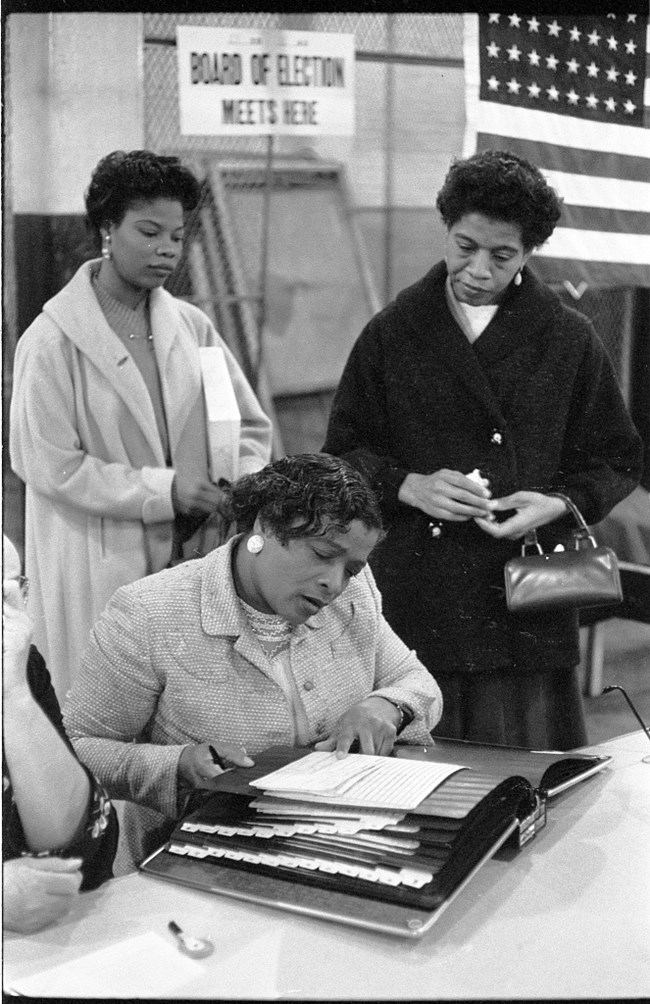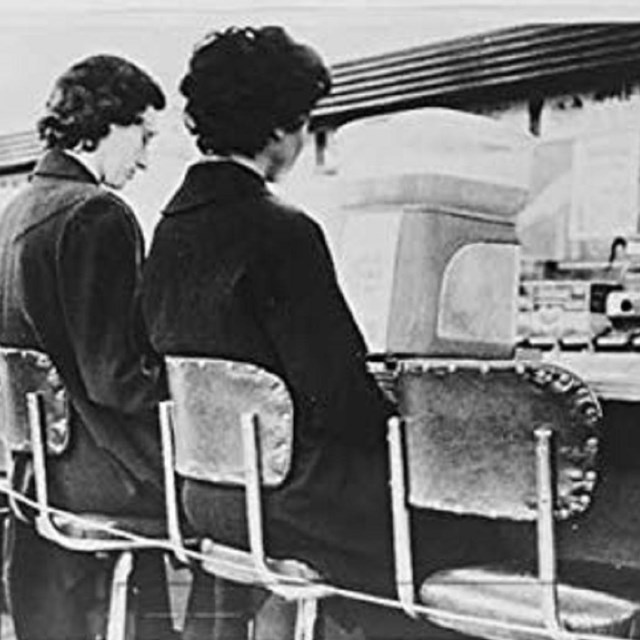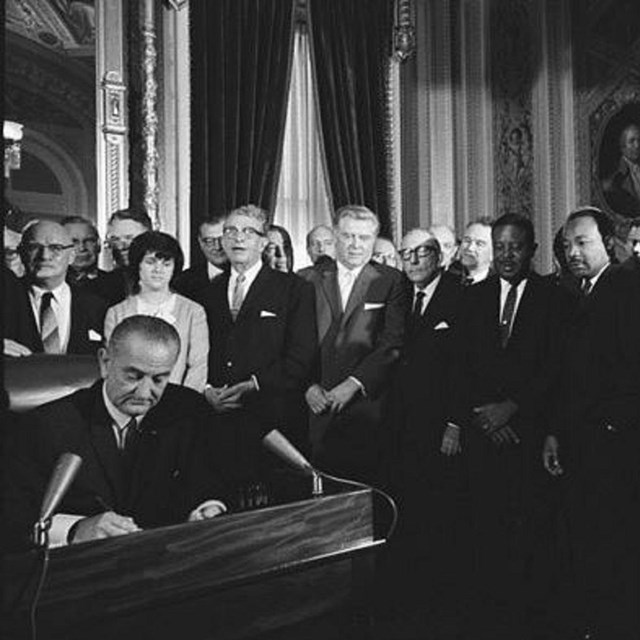Last updated: September 24, 2019
Article
Women and the Civil Rights Movement

Library of Congress, https://www.loc.gov/item/2015651653/.
Women played a crucial role in galvanizing the Civil Rights Movement. While resulting legislation such as the Civil Rights Act and the Voting Rights Act was a win for African Americans of both genders, they were particularly symbolic for women. Black women, often marginalized from women’s suffrage organizations in the late 1800s and early 1900s, founded their own groups to advocate for the rights of African American women and men. Early leaders such as Ida B. Wells and Mary Church Terrell spoke out for their rights as people of color and as women.
During the Civil Rights Movement of the 1950s and 1960s, women were key strategists. Septima Clark, for example, designed educational programs to teach African American community members how to read and write. She thought this was important in order to vote and gain other rights. Her idea for “citizen education” became the cornerstone of the Civil Right Movement.
Learn more about the legislation of the Civil Rights Movement and how it impacted women. Or discover more stories of women shaping the political landscape.
Civil Rights Legislation
-
 Equal Pay Act of 1963
Equal Pay Act of 1963The Equal Pay Act, signed in to law in 1963, was one of the first federal laws that addressed wage differences based on gender.
-
 Civil Rights Act of 1964
Civil Rights Act of 1964This act outlawed discrimination based on race, color, religion, sex, or national origin, requiring equal access to public places and more.
-
 Voting Rights Act of 1965
Voting Rights Act of 1965The Voting Rights Act of 1965 expanded the 14th and 15th amendments by banning racial discrimination in voting practices.
